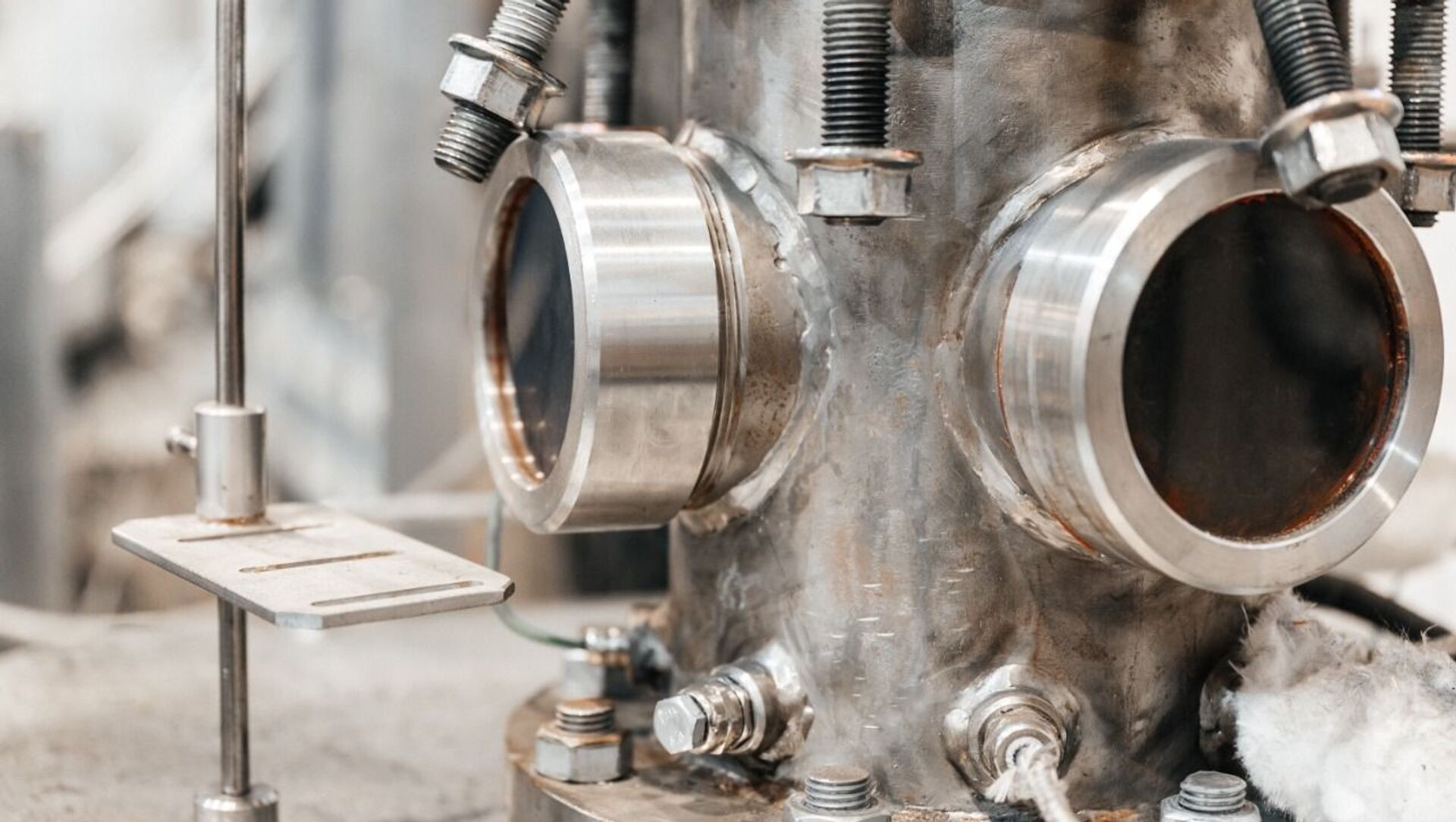https://sputnikglobe.com/20210707/russian-scientists-come-up-with-way-to-improve-recycling-wood-waste-1083329892.html
Russian Scientists Come Up with Way to Improve Recycling Wood Waste
Russian Scientists Come Up with Way to Improve Recycling Wood Waste
Sputnik International
Scientists at Tomsk Polytechnic University (TPU) have figured out how to recycle one of the forest industry’s waste products – “ballast water” from pyrolysis... 07.07.2021, Sputnik International
2021-07-07T15:59+0000
2021-07-07T15:59+0000
2021-07-07T15:59+0000
newsfeed
science & tech
society
recycling
wood
https://cdn1.img.sputnikglobe.com/img/07e5/06/1e/1083275753_0:90:1280:813_1920x0_80_0_0_ad9687669231cf47af0251c5628e0133.jpg
According to the authors of the study, the forest industry constantly accumulates waste wood – sawdust, wood shavings, and chips. This waste is not economically viable for the production of building materials, furniture, or fuel pellets.The researchers claim that pyrolysis (high-temperature decomposition in an oxygen-free environment) is a promising way to recycle wood waste. The products of pyrolysis include semi-coke, combustible gas, and pyrolysis oil.The TPU scientists suggested using pyrolysis water as a liquid-phase component of coal-water fuel (CWF). This is a liquid composite fuel that can include various combustible components – for example, low-grade coals, coal enrichment waste, liquid combustible components, and municipal solid waste.The authors of the study also note that by increasing the heat of coal-water fuel combustion, it is possible to reduce the consumption of fossil fuels by 15-20%, depending on their type and the pyrolysis process. This could potentially increase the resource efficiency of the technology.The study was carried out by Tomsk Polytechnic University in cooperation with industrial partner “Siberian BioUgol” LLC.The results of the study were published in the International Journal of Energy Research.
Sputnik International
feedback@sputniknews.com
+74956456601
MIA „Rosiya Segodnya“
2021
Sputnik International
feedback@sputniknews.com
+74956456601
MIA „Rosiya Segodnya“
News
en_EN
Sputnik International
feedback@sputniknews.com
+74956456601
MIA „Rosiya Segodnya“
Sputnik International
feedback@sputniknews.com
+74956456601
MIA „Rosiya Segodnya“
newsfeed, science & tech, society, recycling, wood
newsfeed, science & tech, society, recycling, wood
Russian Scientists Come Up with Way to Improve Recycling Wood Waste
Scientists at Tomsk Polytechnic University (TPU) have figured out how to recycle one of the forest industry’s waste products – “ballast water” from pyrolysis oil – in an environmentally friendly way.
According to the authors of the study, the forest industry constantly accumulates waste wood – sawdust, wood shavings, and chips. This waste is not economically viable for the production of building materials, furniture, or fuel pellets.
The researchers claim that pyrolysis (high-temperature decomposition in an oxygen-free environment) is a promising way to recycle wood waste. The products of pyrolysis include semi-coke, combustible gas, and pyrolysis oil.
“Oil contains pyrolysis ‘ballast water’ which greatly reduces its energy value. The water needs to be removed, but it cannot be disposed of by simple means (for example, flushed down the drain) as it can be harmful to the environment. However, it contains hydrocarbons, so it can be used as a useful raw material”, Kirill Larionov, associate professor at the TPU Butakov Research Centre, explained.
The TPU scientists suggested
using pyrolysis water as a liquid-phase component of coal-water fuel (CWF). This is a liquid composite fuel that can include various combustible components – for example, low-grade coals, coal enrichment waste, liquid combustible components, and municipal solid waste.
“Our study showed that using pyrolysis water increased the heat value of coal-water fuel by 2.1 MJ/kg, increased the reactivity of the fuel, changed the nature of its combustion process, and was accompanied by less emission of formed nitrogen oxides in the gas-phase combustion products”, Larionov said.
The authors of the study also note that by increasing the heat of coal-water fuel combustion, it is possible to reduce the consumption of fossil fuels by 15-20%, depending on their type and the pyrolysis process. This could potentially increase the resource efficiency of the technology.
The study was carried out by Tomsk Polytechnic University in cooperation with industrial partner “Siberian BioUgol” LLC.
The results of the study
were published in the International Journal of Energy Research.



